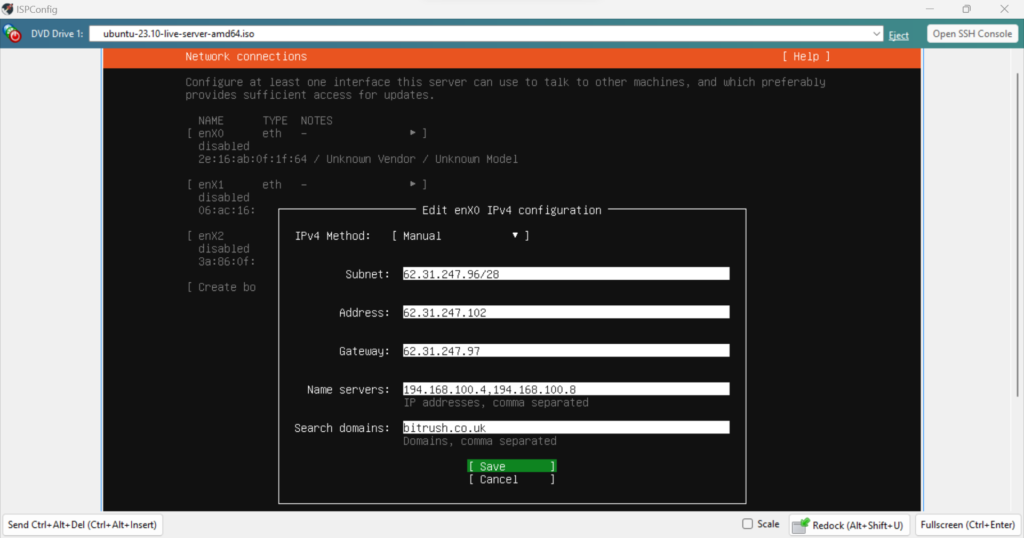Using xcpng1 server, I was pleasantly surprised to see that my ISObank folder and Ubuntu image I had placed appeared when I asked to create a new VM through the XCP-ng management console.
I created a new VM with a sizeable spec including 16GB RAM, 8 dual core vCPUs, a 40GB OS vHDD and a spare 240GB vHDD.

Due to the need for a mirror site during installation and errors when default http://active.ubuntu.com/ubuntu package source location was used. I found the following site, which served the purpose well enough to successfully complete installation.
https://mirror.easyname.at/ubuntu-archive/dists/
Note that upon initial reboot, the VM tried but failed to boot from DVD-drive. This was not an issue as I removed the DVD from the system 0 the VM needed to be powered down first. Then the system booted up as expected.
SSH Log file – for reference
A log of post installation and SSH logs were stored in the file at; C:\Users\Lenovo\Pictures\Screenshots\ISPConfig\bitrush.102-putty.log
Ascertain root user and password
Despite adding myself as user and pil-nosu, I was particularly keen to capture root user and password…
According to a post here the root password is stored in the shadow file and can be reached with;
sudo nano /etc/shadow but I could not see a password next to 'root' In this post I noted the following command; sudo usermod root -p password; sudo passwd root; I issued sudo usermod root -p password; replacing 'password' with my own. Then issued su root but it would not accept my new password... I then issued command sudo passwd root; It then asked me to enter new password, twice. Then I was able to issue su and it accepted my new password... This suggests the commands needed to be issued as shown, concurrently... I.e. sudo usermod root -p password; sudo passwd root;
First of all, I was unable to download the install script
It turns out I am unable to install ISPConfig on Ubuntu 23.10.
Supported operating systems
- Debian 9 – 11, and testing
- Ubuntu 16.04 – 20.04
- CentOS 7 and 8
as clearly stated at https://git.ispconfig.org/ispconfig/ispconfig3
The latest version of Ubuntu that ISPConfig will install on is Ubuntu 20.04 🙁
So, I will create a new VM with Ubuntu 20.04 OS to then install ISPConfig3